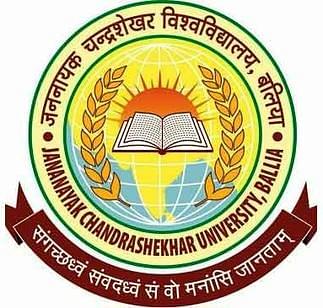Introduction about BSc Crop Physiology
A Bachelor of Science (BSc) in Crop Physiology from the best university in India is an undergraduate degree program that focuses on the
physiological processes of plants and their relationship to crop production.
Crop physiology is a branch of plant science that examines how plants grow,
develop, and respond to environmental factors, with the goal of optimizing crop
yield, quality, and resilience in agricultural systems.
Here's an introduction to BSc Crop Physiology:
·
Program Overview: BSc Crop Physiology programs
provide students with a comprehensive understanding of the biological processes
that govern plant growth, development, metabolism, and reproduction, with a
specific emphasis on crop plants. Students learn how physiological processes
such as photosynthesis, respiration, transpiration, nutrient uptake, and
hormone regulation influence crop performance and productivity.
·
Core Subjects: The curriculum typically
includes a combination of core subjects in plant biology, crop science,
physiology, and agriculture, as well as specialized coursework in crop
physiology. Core subjects may include plant anatomy and morphology, genetics,
biochemistry, microbiology, soil science, and statistics.
·
Crop Physiology: In crop physiology courses,
students study the physiological mechanisms underlying crop growth,
development, and yield formation. Topics may include plant-water relations,
nutrient uptake and assimilation, photosynthetic efficiency, hormonal
regulation, flowering and fruiting processes, environmental stress responses,
and crop modeling.
·
Field and Laboratory Work: BSc Crop
Physiology programs often include fieldwork and laboratory exercises where
students apply theoretical concepts to practical situations. Fieldwork may
involve crop monitoring, experimentation, data collection, and analysis in
agricultural settings, while laboratory work may include experiments,
measurements, and analyses of plant physiological parameters.
·
Crop Management and Production: Students
learn how to apply knowledge of crop physiology to optimize crop management
practices and enhance agricultural productivity. Courses may cover topics such
as crop selection and breeding, cultivation techniques, irrigation management,
fertilization, pest and disease management, and post-harvest handling.
·
Environmental Physiology: BSc Crop
Physiology programs may include coursework in environmental physiology, which
examines how plants respond to abiotic factors such as temperature, light,
water, nutrients, and atmospheric gases. Students learn about plant adaptations
to environmental stressors and strategies for mitigating environmental impacts
on crop growth and yield.
·
Research and Projects: Some programs offer
opportunities for students to engage in research projects, independent studies,
or supervised internships related to crop physiology. These experiences allow
students to conduct scientific investigations, explore specialized topics, and
gain hands-on research skills under the guidance of faculty mentors.
·
Career Opportunities: Graduates of BSc Crop
Physiology programs are prepared for careers in various sectors of the
agriculture industry, including crop production, research and development,
agribusiness, consulting, extension services, and academia. They may work as
crop consultants, agronomists, crop scientists, agricultural researchers, farm
managers, or educators, contributing to the advancement of sustainable and
productive agriculture.
Overall, a BSc in Crop Physiology provides students with a solid
foundation in plant physiology and crop science, equipping them with the
knowledge, skills, and practical experience needed to address the challenges of
global food security, environmental sustainability, and agricultural innovation
in the 21st century.
What is eligibility for BSc Crop Physiology ?
The eligibility criteria for a Bachelor of Science (BSc) program in Crop
Physiology from the top college can vary depending on the institution
offering the program and the country or region in which it is located. However,
here are some common eligibility requirements you might encounter when applying
for a BSc Crop Physiology program:
v Educational
Background: Applicants are typically required to have completed secondary
education or its equivalent, such as high school, A-levels, or international
baccalaureate (IB) diploma. They should have a strong foundation in science
subjects, particularly biology, chemistry, and mathematics.
v Minimum Academic
Requirements: Institutions may specify minimum academic requirements for admission,
such as minimum grades or grade point average (GPA) in relevant subjects. These
requirements may vary depending on the competitiveness of the program and the
institution's admission standards.
v Prerequisite
Courses: Some BSc Crop Physiology programs may require applicants to have
completed specific prerequisite courses in biology, chemistry, physics, or
mathematics during their secondary education. These courses ensure that
students have the necessary background knowledge to succeed in the program.
v Entrance
Examinations (if applicable): In some countries or institutions,
applicants may be required to take entrance examinations or standardized tests
as part of the admission process. These examinations may assess the applicant's
knowledge and skills in relevant subjects such as biology, chemistry, and
mathematics.
v Language
Proficiency: If the language of instruction for the BSc Crop Physiology program is
not the applicant's native language, they may be required to demonstrate
proficiency in the language of instruction through standardized language tests
such as the TOEFL (Test of English as a Foreign Language) or IELTS
(International English Language Testing System).
v Other Admission
Requirements: Depending on the institution, applicants may need to submit additional
materials as part of the application process, such as letters of
recommendation, personal statements or essays, a resume or curriculum vitae
(CV), or evidence of extracurricular activities or achievements.
v Interview (if
applicable): Some institutions may require applicants to participate in an
interview as part of the admission process. The interview allows admissions
committees to assess the applicant's motivation, academic interests,
communication skills, and suitability for the program.
It's important to carefully review the specific eligibility requirements
and admission procedures of each BSc Crop Physiology program to which you are
applying. Institutions may have different criteria and deadlines for admission,
so be sure to check the program's website or contact the admissions office for
detailed information.
What is admission process for BSc Crop Physiology ?
The admission for Bachelor of Science (BSc) in Crop Physiology at the top university can vary depending on the institution offering the program
and the specific requirements of the program. However, here's a general
overview of the typical admission process for a BSc Crop Physiology program:
v Research and
Exploration: Before applying to BSc Crop Physiology programs, research different
institutions and their offerings to find programs that align with your academic
interests, career goals, and personal preferences. Consider factors such as
program curriculum, faculty expertise, research opportunities, facilities,
location, and accreditation.
v Application
Submission: Begin the application process by submitting an application form
through the institution's admissions website or portal. Be sure to review the
application deadlines and requirements carefully, as they can vary from program
to program.
v Transcripts: Request
official transcripts from all post-secondary institutions you have attended,
including secondary education or its equivalent. These transcripts should be
sent directly to the admissions office of the BSc Crop Physiology program to
which you are applying.
v Standardized Tests
(if applicable): Some institutions or programs may require
applicants to submit standardized test scores, such as the SAT (Scholastic
Assessment Test) or ACT (American College Testing) for domestic students, or
English proficiency tests such as the TOEFL (Test of English as a Foreign
Language) or IELTS (International English Language Testing System) for
international students. If required, register for the exam and have your scores
sent directly to the institution.
v Letters of
Recommendation: Some BSc Crop Physiology programs may require letters of
recommendation from teachers, counselors, or other individuals who can speak to
your academic abilities, work ethic, and potential for success in the program.
Be sure to provide your recommenders with any required forms or instructions
for submitting letters of recommendation.
v Personal Statement
or Essay: Write a personal statement or essay that highlights your academic
background, career goals, reasons for pursuing a BSc in Crop Physiology, and
how the program aligns with your interests and aspirations. The personal
statement provides admissions committees with insights into your motivation,
aspirations, and suitability for the program.
v Interview (if
applicable): Some BSc Crop Physiology programs may require applicants to
participate in an interview as part of the admission process. If invited for an
interview, prepare by familiarizing yourself with the program, articulating
your academic interests and goals, and being ready to discuss your background
and experiences.
v Additional
Materials (if applicable): Depending on the program, you may need to submit
additional materials as part of the application process, such as a resume or
curriculum vitae (CV), evidence of extracurricular activities or achievements,
or a portfolio of relevant work.
v Application Review
and Admission Decision: After submitting your application materials, the
admissions committee will review your transcripts, test scores, letters of
recommendation, personal statement, and any additional materials submitted. You
will receive an admission decision from the institution within a specified
timeframe.
v Enrollment and
Registration: If accepted, you will receive instructions on how to enroll in the BSc
Crop Physiology program and register for classes. Be sure to complete any
additional requirements, such as submitting a tuition deposit or attending
orientation sessions, as specified by the institution.
What is syllabus for BSc Crop Physiology ?
The syllabus for a Bachelor of Science (BSc) program in Crop Physiology
can vary depending on the institution offering the program and the specific
requirements of the curriculum. However, here's a general overview of the types
of courses and topics you might encounter in a BSc Crop Physiology program:
Ø Foundation Courses
in Biology and Chemistry:
Introduction to Biology
General Chemistry
Organic Chemistry
Biochemistry
Plant Biology
Ø Crop Physiology
Core Courses:
Principles of Crop Physiology
Crop Growth and Development
Plant Nutrition
Water Relations in Plants
Photosynthesis and Respiration
Plant Hormones and Growth Regulators
Crop Stress Physiology
Ø Crop Production and
Management:
Principles of Crop Production
Crop Ecology and Adaptation
Crop Breeding and Genetics
Crop Management Practices
Irrigation and Water Management
Fertilizer Management
Integrated Crop Management
Ø Soil Science and
Plant Nutrition:
Soil Physics and Chemistry
Soil Biology
Soil Fertility and Fertilizers
Nutrient Cycling in Agroecosystems
Soil-Plant Interactions
Soil Conservation and Management
Ø Pest and Disease
Management:
Principles of Plant Pathology
Principles of Entomology
Weed Science
Integrated Pest Management (IPM)
Disease Diagnosis and Management
Insect Pest Management
Weed Management Strategies
Ø Applied
Agricultural Sciences:
Introduction to Agricultural Biotechnology
Agricultural Microbiology
Crop Physiology Laboratory
Field Crop Production
Horticultural Crop Production
Sustainable Agriculture Practices
Ø Research Methods
and Data Analysis:
Experimental Design and Statistical Analysis
Research Methods in Crop Physiology
Data Collection and Analysis Techniques
Scientific Writing and Communication
Ø Elective Courses:
Advanced Crop Physiology Topics
Advanced Plant Genetics
Plant Breeding and Biotechnology
Environmental Physiology
Agroecology
Crop Modelling and Simulation
Ø Internship or Field
Experience:
Practical Training in Crop Production or Research
Fieldwork in Agricultural Settings
Internship with Agricultural Organizations or Companies
Ø Capstone Project or
Thesis:
Independent Research Project in Crop Physiology
Senior Thesis in Crop Physiology
Culminating Experience in Crop Physiology
Keep in mind that the specific syllabus and course offerings of a BSc
Crop Physiology program can vary from one institution to another, so it's
important to review the curriculum of individual programs to find one that
aligns with your interests, career goals, and aspirations in the field of crop
physiology and agriculture. Additionally, some programs may offer
specialization tracks or elective courses that allow students to tailor their
education to specific areas of interest within crop physiology.
What are scopes after BSc Crop Physiology ?
After completing a Bachelor of Science (BSc) program in Crop Physiology,
graduates have various career opportunities available to them in the
agricultural sector and related fields. Here are some potential scopes and
career paths for individuals with a BSc in Crop Physiology:
i.
Crop Research Scientist:
Graduates can pursue careers as crop research scientists, working in research
institutions, agricultural laboratories, universities, or private companies.
They conduct research on crop physiology, genetics, breeding, and management
practices to improve crop productivity, resilience, and sustainability.
ii.
Crop Consultant or Agronomist: Crop
consultants or agronomists provide advisory services to farmers, agricultural
businesses, or government agencies on crop production, management practices,
and pest/disease control. They offer recommendations based on knowledge of crop
physiology, soil science, agronomy, and agricultural technologies.
iii.
Crop Production Manager:
Graduates may work as crop production managers on farms, plantations, or
agricultural estates, overseeing the cultivation, management, and harvest of
crops. They are responsible for optimizing crop yields, ensuring quality
control, implementing production schedules, and managing resources such as
land, labor, and machinery.
iv.
Seed Technologist or Breeder: Seed
technologists or breeders develop new crop varieties with desirable traits such
as higher yield, disease resistance, drought tolerance, or nutritional quality.
They conduct breeding experiments, evaluate plant characteristics, and select
superior genotypes for seed production and commercialization.
v.
Extension Officer or Educator:
Graduates can work as agricultural extension officers, educators, or outreach
specialists, disseminating knowledge and information to farmers, communities,
and stakeholders. They provide training, workshops, demonstrations, and
technical assistance on crop production, best management practices, and
sustainable agriculture.
vi.
Agribusiness Professional:
Graduates may pursue careers in agribusiness companies, agricultural supply
firms, seed companies, or agrochemical companies, working in roles such as
sales, marketing, product development, or technical support. They help develop
and promote agricultural products, technologies, and services for farmers and
agribusiness clients.
vii.
Environmental Consultant: Some
graduates may work as environmental consultants or specialists, focusing on
sustainable agriculture, conservation practices, and environmental stewardship.
They assess the environmental impact of agricultural activities, develop
conservation plans, and implement strategies to mitigate environmental
degradation.
viii.
Research Associate or Technician:
Graduates can work as research associates or technicians in academic research
labs, government agencies, or private research organizations. They assist with
research projects, conduct experiments, collect data, analyze results, and
contribute to scientific publications in the field of crop physiology and
agriculture.
ix.
Government Officer or Policy Analyst:
Graduates may pursue careers in government agencies, agricultural ministries,
or non-profit organizations, working in roles such as policy analysts, program
managers, or regulatory officers. They develop and implement agricultural
policies, programs, and initiatives to support food security, rural
development, and sustainable agriculture.
x.
Further Education: Some graduates may choose
to pursue further education by enrolling in graduate programs such as Master of
Science (MSc) or Doctor of Philosophy (Ph.D.) in Crop Physiology, Plant
Science, Agricultural Science, or related fields. Advanced degrees can lead to
opportunities in academia, research, industry leadership, or specialized roles
in crop physiology and agricultural sciences.
These are just a few examples of the career scopes and opportunities
available to graduates with a BSc in Crop Physiology. The agricultural sector
offers a diverse range of career paths, allowing individuals to apply their
knowledge and skills to address global challenges such as food security,
environmental sustainability, and agricultural innovation.












